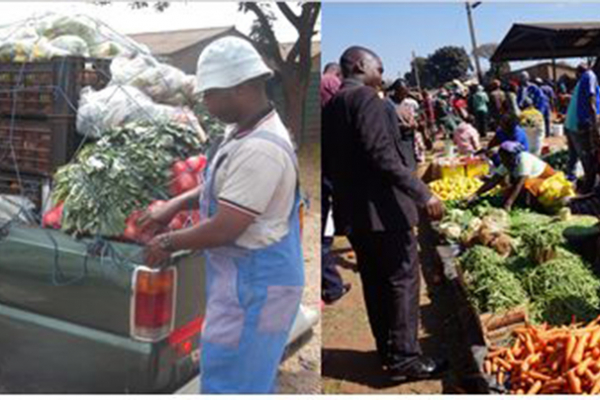
BESIDES climate change and environmental degradation, a major challenge facing many African rural communities is the migration of skills and talent to urban centres.
CHARLES DHEWA
There is no prize for guessing who wins in the competition for talent between rural and urban communities.
Building rural agricultural markets is one way of converting agricultural commodities and value chains into sustainable career pipelines for the young generation.
Such a vision can be fuelled by rapid urbanisation and the expansion of ICTs into formerly marginalised areas.
Raising the banner of working together
The new era of big data and machine learning is inspiring a new culture of gathering evidence that can help in redistributing agricultural talent from urban to rural communities. Through informal agricultural markets, value chain actors are being compelled to collaborate on a new scale and to work more closely with consumers.
It no longer pays for private companies to jealously guard their secrets, for fear of being beaten in the market. Gone are the days it made sense for academic researchers to act like sole proprietors obsessed with individual achievements.
- Chamisa under fire over US$120K donation
- Mavhunga puts DeMbare into Chibuku quarterfinals
- Pension funds bet on Cabora Bassa oilfields
- Councils defy govt fire tender directive
Keep Reading
Some of the best ideas and innovations can come from rural areas, if the right conditions and incentives are availed. Policymakers and development agencies cannot expect to achieve rural development when technological knowledge and progressive ideas are locked in urban areas.
The role of data in nurturing trust and shifting incentives
Creating career pipelines and economic growth opportunities in rural farming areas may not happen without a culture of collecting data and turning it into reliable insights.
While data can provide the much-needed reality check on a continuous basis, such data cannot be found in a single organisation or institution. There is need for new methods, talent, capabilities and infrastructure for translating data into useful evidence.
Without investment in talent and important capabilities, only a few people, mostly based in urban centres, will be able to manipulate data in ways that satisfy their own career persuasions.
People as the main knowledge assets
In addition to data, the fluid expertise of traders, consumers, retired farmers and other professionals is critical in ensuring rural communities become part of knowledge societies. However, experiences from working with diverse farming communities over the past few years have confirmed to eMKambo that people have different motivations for sharing or withholding knowledge.
While there is a long-held assumption that field days are the best way through which farmers can share knowledge, many farmers are interested in what knowledge means to their own contexts and competitiveness as opposed to what it means to everyone. Many value chain actors share knowledge when sharing is the best thing to do.
A small proportion of farmers and traders share knowledge because sharing is part of their nature and so they can share proactively. There is another second group of farmers, traders and consumers who share knowledge when asked to share.
This group can keep knowledge to itself until there is a clear demand for it. The last group comprises those who share when benefits of sharing are clear.
As the entrepreneurship spirit catches up in many rural communities, its category is increasing. Paying attention to all these issues and categories is important, especially when trying to use agriculture and natural resources in helping communities to life themselves out of poverty and become consistent economic actors who see knowledge as a commodity for the future.
[email protected] / [email protected] / [email protected] Website: www.emkambo.co.zw / www.knowledgetransafrica.com eMkambo Call Centre: 0771 859000-5/ 0716 331140-5 / 0739 866 343-6











